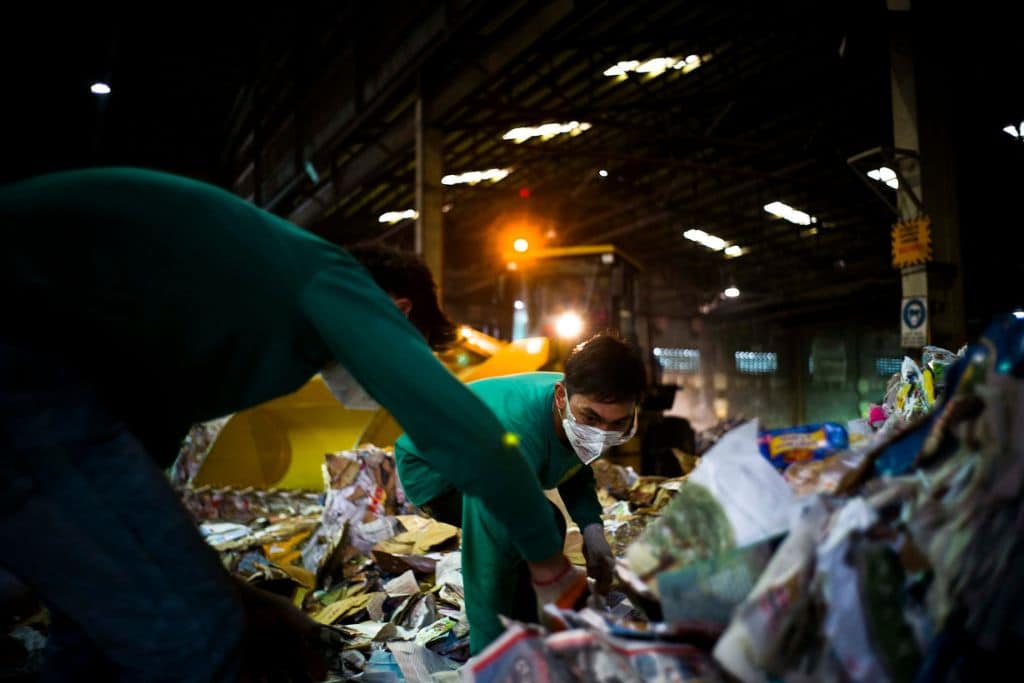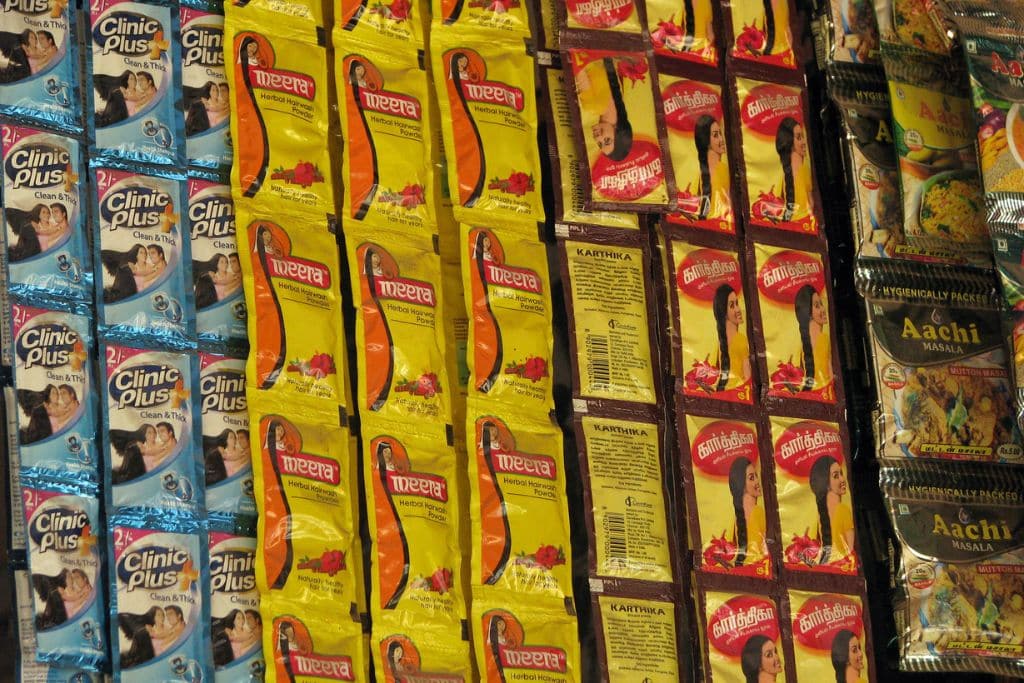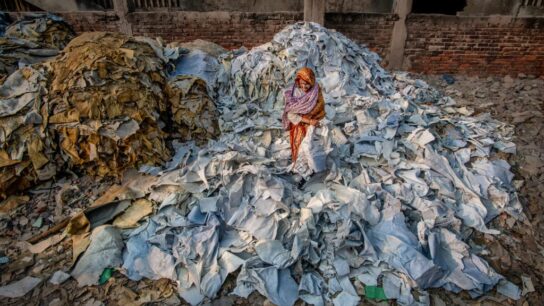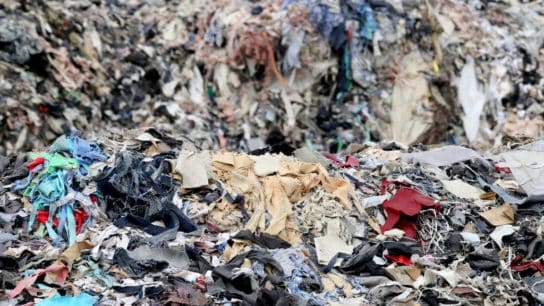The “Kuha sa Tingi” project by Greenpeace Philippines pioneers sustainable refilling stations to reduce dependency on plastic sachets, offering hope amid a rapidly worsening situation. A recent study linked chemical plasticisers in single-use food packaging such as sachets to increased heart disease-related deaths.
—
Phthalates, chemical plasticizers commonly used to enhance the flexibility, transparency, and durability of plastic products like food packaging, are linked to an increased risk of heart disease, according to new research. The study, published in April, cited over 110,000 recorded deaths in the Asia-Pacific region, the second-highest mortality rate globally related to exposure to these plastic chemicals.
Heart disease has been the leading cause of death for Filipinos since 1980. According to the Philippines Statistics Authority, ischaemic heart disease has led to the most fatalities nationwide in 2024. It accounted for over 20.2% of total deaths in the country, an increase from 18.6% in 2023.
“Given the prevalence of single-use plastic in the Philippines, and the fact that heart disease has consistently been the leading cause of death in the country for many years, these findings should be a clear signal to reduce plastic production and use now,” Marian Frances Ledesma, a Zero Waste Campaigner at Greenpeace Philippines, said in a report published in May.
Enslaved By the Sachet Economy
Filipino’s exposure to and reliance on single-use plastic sachets for daily necessities is significant and deeply entrenched in their everyday life. From Nescafé three-in-one coffee to Colgate toothpaste available in every sari-sari store (corner community shop), companies selling Fast-Moving Consumer Goods (FMCG) – products sold quickly and cheaply – have created a market entirely dependent on sachets.

With over 15% of the population living under the poverty line, these pocket-sized portions are oftentimes the only viable option for cash-strapped individuals to afford basic essential items for themselves and their families.
“Money is hard to come by, so I only buy sachets,” Lisa Jorillo, a 42-year-old mother of four who lives in a slum in Manila’s Tondo area behind a beach blanketed by trash, told Reuters.
According to a 2020 report by the Global Alliance for Incinerator Alternatives (GAIA), Filipinos use a staggering 164 million sachets a day.
“Sachet pollution is both psychological and physical. Sachets are advertised now as indispensable, even though Filipinos had done well for a long time without them. They are promoted as convenient, despite the fact that their convenience is merely upon purchase and use, and that their inconveniences stretch out over a long time,” according to the same GAIA report.
A 2023 brand audit by Break Free From Plastic, which involved over 800 volunteers collecting and sorting sachets across Asia, found that the top three sachet polluting companies in the Philippines are Yes2HealthyLife, Mayora Indah, and Procter & Gamble.
These companies have made sachets practically impossible to recycle, as they typically come in layers of different plastics and foil designed to withstand heat and humidity in tropical climates. This material complexity results in sachets being inherently single-use, polluting waterways, oceans, and landfills.
According to the same GAIA report, sachets are responsible for approximately 52% of the residual plastic waste stream, where they defile natural landscapes, choke waterways, harm wildlife, and threaten the safety of Filipinos, particularly those residing in flood-prone areas during typhoon season. Many of these communities also rely heavily on fisheries and tourism for their livelihoods, making the impact of sachet waste even more pronounced.
Towards a Sachet-Free Society
While the hopes of a sachet-free society seem distant, some environmental groups are actively developing sustainable solutions to reduce the use of sachets and ultimately end plastic pollution.
In 2023, Greenpeace Philippines launched the “Kuha sa Tingi” project, an initiative aimed at halting the use of sachets. The project kicked off in Quezon City and the City of San Juan, some of Metro Manila’s highest waste-generating cities.
Buying in tingi means to purchase goods in small quantities, often by bringing refillable containers to convenience stores, better known as sari-sari in the Philippines. However, what once was a sustainable practice became a springboard for capitalist businesses to peddle the mass proliferation of harmful plastic sachets.
“I remember that when I was a young kid, whenever I was sent to the sari-sari store to buy something in tingi, say one fourth of a bottle of vinegar, my mother would make me bring a container with me. The tindera (store owner/manager) would pour the vinegar into the container,” said Sherna Bernosa, Knowledge Management Officer of GAIA Asia Pacific.
“Today, people still buy about the same quantity of vinegar. But unlike before, they no longer bring a container with them because the same quantity of vinegar (perhaps even smaller) now comes in sachets and they are not only available in sari-sari stores but also in big groceries,” Bernosa explained.

Greenpeace aims to revive the Filipino tingi culture into a business model that integrates refill stations in existing family-owned shops, allowing people from all socioeconomic brackets to purchase everyday commodities in an accessible, affordable, and sustainable manner. Partnering with local government units and participating sari-sari stores, Greenpeace released a report in 2024 highlighting the project’s success.
“Our partnership with Greenpeace and Innovation Catalyst only proves that shifting to Zero Waste and limiting our plastic generation is inclusive, affordable, and accessible to all—including those from all socio-economic sectors and urban areas,” said Joy Belolmonte, Mayor of Quezon City.
According to the report, refill stations prevented the sale of over 47,000 sachets. Consumers were even able to save about 201% in costs on average by refilling a reusable container instead of buying products in sachet form. Small businesses, on the other hand, earned 15% more by having sustainable dispenser installations.
“Kuha sa Tingi helped me a lot because it increased my store’s income, which has also helped cover our daily expenses at home, said Menchie Paule, a store partner in Quezon City. Whenever I would open my store before, I would see plastic waste everywhere, but ever since Kuha sa Tingi started, I noticed that the surroundings are cleaner”.
By the end of the project rollout, store owners and consumers adopted more sustainable practices, such as selling products based on profitability and consumer demand, along with developing a consciousness for bringing refillable containers.
This is only the beginning as Greenpeace Philippines plans to reach more communities across Metro Manila. As Greenpeace continues to expand this initiative, they call on FMCG businesses to phase out sachet packaging and governments to implement a robust regulatory framework that addresses the entire lifecycle of plastics.
Featured image: McKay Savage/Flickr.
This story is funded by readers like you
Our non-profit newsroom provides climate coverage free of charge and advertising. Your one-off or monthly donations play a crucial role in supporting our operations, expanding our reach, and maintaining our editorial independence.
About EO | Mission Statement | Impact & Reach | Write for us







